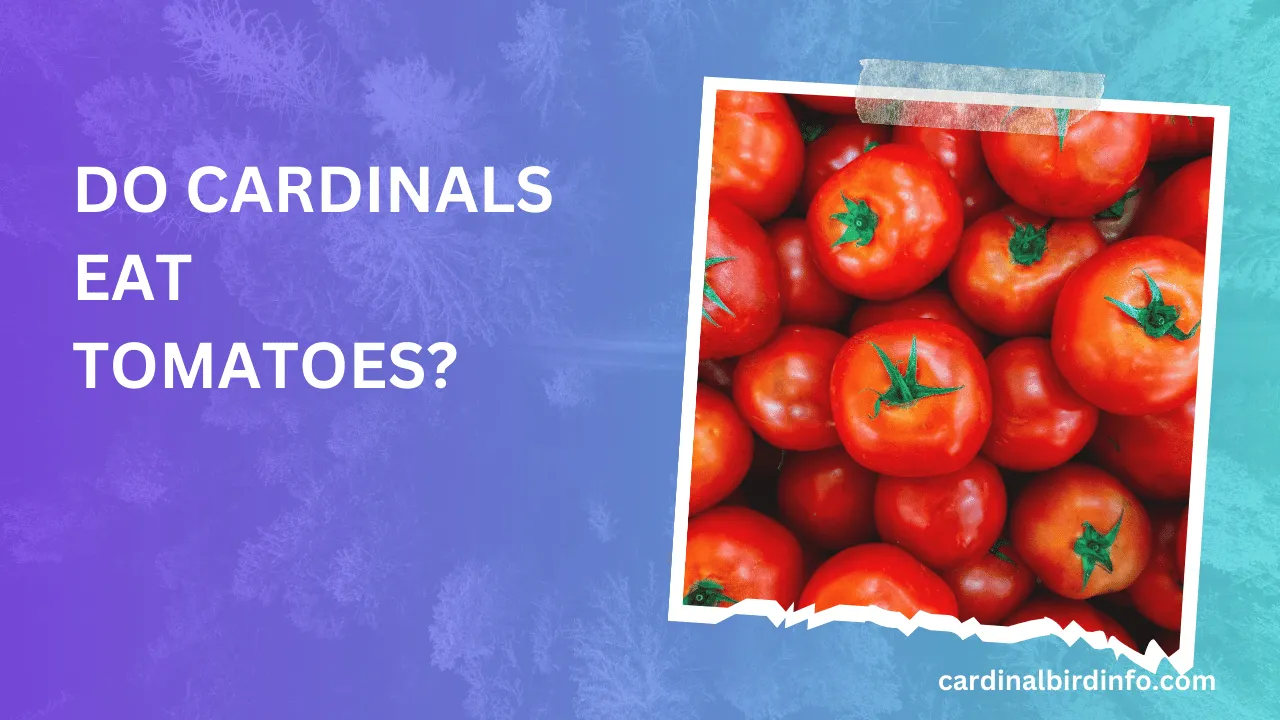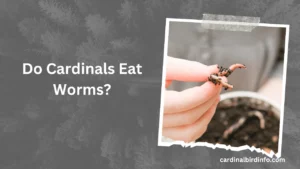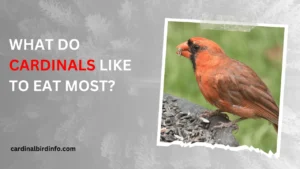Contents
Introduction
Cardinals are admired for their brilliant red plumage and melodic songs, but did you know these charming birds might have an eye for your garden tomatoes? It’s a question that stirs curiosity among birdwatchers and gardeners alike: Do cardinals eat tomatoes?
The sight of a bright red bird nibbling on your ripe tomatoes may seem unexpected, but it’s a behavior rooted in the complex dietary habits of these birds. Understanding what draws a cardinal to your garden can shed light on broader aspects of their feeding patterns and the unique relationship between wildlife and human spaces.
At first glance, cardinals might not seem like the type to snack on tomatoes. These birds are often associated with insects and seeds, so the idea of them going for your juicy vegetables might raise an eyebrow.
Yet, the answer is not so simple. As the seasons change and food sources vary, cardinals adapt, and sometimes that means sampling your garden’s offerings. Could tomatoes provide cardinals with something they need? Or are they simply opportunistic eaters?
In this blog, we’ll uncover why cardinals might find your tomatoes irresistible and explore the nutritional benefits they can gain from this unexpected treat. Whether you’re a gardener worried about your plants or simply curious about cardinal behavior, this article will delve deep into the bird’s dietary habits and what it means for your backyard ecosystem.
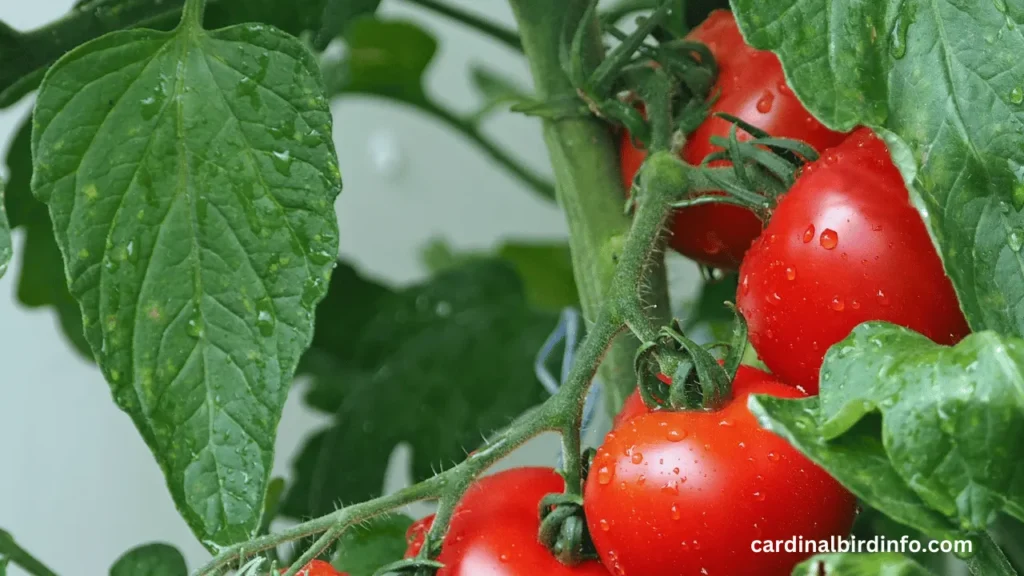
1. Cardinal Diet and Behavior
Cardinals are primarily insectivorous, feasting on insects like beetles, caterpillars, and spiders. This protein-packed diet is especially crucial during the breeding season, providing essential nutrients for growing chicks. However, as the seasons shift and insects become scarce, cardinals adapt.
During fall and winter, they rely more on seeds, fruits, and berries to meet their dietary needs. The cardinal’s foraging habits vary depending on the season and location. Typically, they search for food on the ground or low branches, preferring areas with dense vegetation for cover.
However, when resources are limited, cardinals may explore gardens and farms in search of sustenance, leading to their interest in ripening fruits like tomatoes.
2. Nutritional Value of Tomatoes
Tomatoes are rich in vitamin C, potassium, and lycopene, all of which can be beneficial to birds. Vitamin C supports immune health, while potassium aids muscle function and hydration. Lycopene, a powerful antioxidant, helps protect cells from damage, which can be particularly valuable for birds during molting or breeding seasons.
For cardinals, these nutrients can enhance their overall health and reproductive success, especially when their typical food sources are limited. This makes tomatoes a surprisingly nutritious option for them during certain times of the year.
3. Reasons for Eating Tomatoes
Cardinals may turn to tomatoes when other food sources are scarce. During droughts, harsh winters, or other periods of food shortages, fruits become a vital alternative. Ripe and soft tomatoes offer hydration and a quick energy boost, making them an attractive option.
Cardinals, like many animals, have individual preferences. Some may take a liking to tomatoes, while others might pass them by in favor of more familiar foods. This variability means not all cardinals will raid your garden, but those that do are likely responding to nutritional needs.
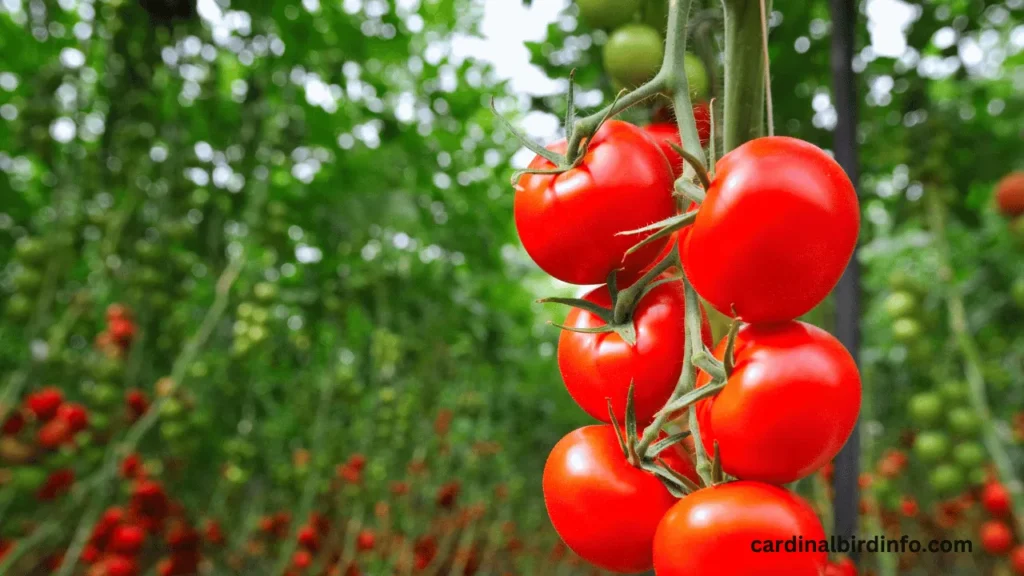
4. Observational Studies and Anecdotes
Numerous birdwatchers and gardeners have observed cardinals eating tomatoes. In fact, several studies have documented this behavior in suburban areas where cardinals are common. Homeowners often report finding peck marks on their tomatoes, evidence that these birds occasionally indulge in the fruit.
Anecdotal evidence from bird enthusiasts supports these observations. While some cardinals stick to seeds and insects, others have been seen pecking at ripening tomatoes, especially during late summer when other food sources diminish.
5. Impact on Tomato Plants
While cardinals may nibble on your tomatoes, their presence can have some positive effects. For instance, by consuming small insects and pests that also target tomatoes, cardinals can act as natural pest control agents. Seed dispersal is another potential benefit, as the birds might spread tomato seeds in new areas.
However, there are potential downsides. Damaged plants and spoiled tomatoes can frustrate gardeners, and in some cases, cardinals may attract other pests that further harm your crops. Balancing bird-friendly gardening with protecting your harvest can be a challenge, but it’s possible with thoughtful planning.
Conclusion
In conclusion, while cardinals primarily stick to insects and seeds, they are not averse to snacking on tomatoes, especially when food is scarce or the fruit is ripe. Tomatoes provide key nutrients that support their health, particularly during challenging seasons.
Although this behavior may not be widespread, it demonstrates the adaptability of cardinals and their ability to thrive in various environments. Understanding a cardinal’s dietary habits can offer valuable insights into the broader ecosystem and how birds and plants coexist.
While their occasional tomato snacking may be a nuisance to gardeners, it’s a reminder of the intricate balance between nature and human spaces. By appreciating this relationship, we can better coexist with the wildlife in our backyards.
FAQs
1. Do cardinals typically eat tomatoes?
Yes, although it’s not their primary food source, cardinals may eat tomatoes when other food sources are scarce or the tomatoes are particularly ripe and soft.
2. Are tomatoes good for cardinals?
Yes, tomatoes provide important nutrients like vitamin C, potassium, and lycopene that support cardinal health.
3. Why would a cardinal eat my tomatoes?
Cardinals may eat tomatoes due to scarcity of other food sources or because the fruit is an easy-to-access, nutritious option.
4. Do all cardinals eat tomatoes?
No, individual preferences vary. Some cardinals may enjoy tomatoes, while others stick to more familiar foods.
5. Is it harmful for cardinals to eat tomatoes?
No, tomatoes are generally safe for cardinals, but they should be consumed in moderation, as part of a varied diet.
6. Will cardinals destroy my tomato plants?
While cardinals may peck at the fruit, they are unlikely to cause significant damage to the plants. However, their presence may attract other pests.
- How can I prevent cardinals from eating my tomatoes?
To deter cardinals, consider using bird netting or distracting them with bird feeders filled with their preferred seeds. - Do cardinals help my garden in any way?
Yes, cardinals can help by controlling pests like insects and potentially dispersing seeds, which benefits the overall health of your garden.

